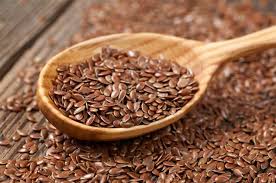BEIJING: China and Pakistan have joined hands to enhance production of flaxseed that will help reducing oil imports, China Economic Net (CEN) reported on Wednesday.
Recently, the newly-unveiled Flax Study Research and Innovation Hub between China and Pakistan by Gansu Academy of Agricultural Sciences (GAAS) and Sindh Agriculture University, Tandojam (SAU) is expanding the horizons of agricultural cooperation between the two countries.
The two sides are working together on variety selection and breeding, planting technology improvement, etc., aiming to reduce both countries’ dependence on imports when it comes to edible oil.
“Pakistan is one of the largest importers of edible oil across the globe, and the insufficiency of edible oil in the country keeps expanding.
At present, although China is the world’s major flaxseed processer with an annual processing capacity of about 1 million tons, about 60% of flaxseeds are imported.
So China and Pakistan face the same challenge in increasing domestic flaxseed production,” Zhao Wei, research fellow at Gansu Academy of Agricultural Sciences told CEN.
China and Pakistan are highly complementary in flaxseed production and processing. Pakistan is blessed with abundant flax resources, and most of the local resources represented by yellow flax are scarce in China.
However, less developed planting technology and lack of farming machinery and improved varieties are hampering Pakistan’s flaxseed production.
Gansu is a main producing region of flaxseeds in China, and the Crop Research Institute of GAAS leads the way in flaxseed breeding and production technology domestically and even internationally.
The collaboration between GAAS and SAU is bringing win-win outcomes for both countries.
The cooperation between GAAS and SAU dated from 2020. Up till now, they have solved many problems encountered in flax cultivation in cold and arid areas, and improved stress-resistance especially salt-tolerance of flax to some extent.
“Three Chinese flax varieties were brought to Pakistan by Dr. Abdul Ghaffar despite the COVID-19 pandemic and have been planted on a trial basis in Pakistan successfully.
Seven flax varieties introduced from Pakistan have been bred in China, and two more Pakistani flax varieties arrived in China this July by Prof. Allah Wadhayo Gandahi from SAU,” Zhao Wei said.
In the future, in the Flax Study Research and Innovation Hub between China and Pakistan, new variety selection and breeding of dryland crops in cold areas, planting technology, plant nutrition, and agricultural machinery will be the main emphasis of their work.
Simultaneously, academic meetings, training seminars, teacher and student exchange and visits will be arranged by the two sides.
Revealed by Zhao Wei, the research in the Hub will be not only limited to flax and flaxseed, but also include forage sorghum, cotton, rape and small grains.
Sharing similarities in geography, environment, ecology, climate, etc., the agricultural cooperation between northwest Chinese province Gansu and Pakistan is mushrooming, exhibiting greater potential to grow as China-Pakistan Economic Corridor (CPEC) progresses.




